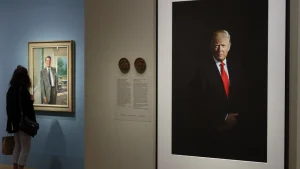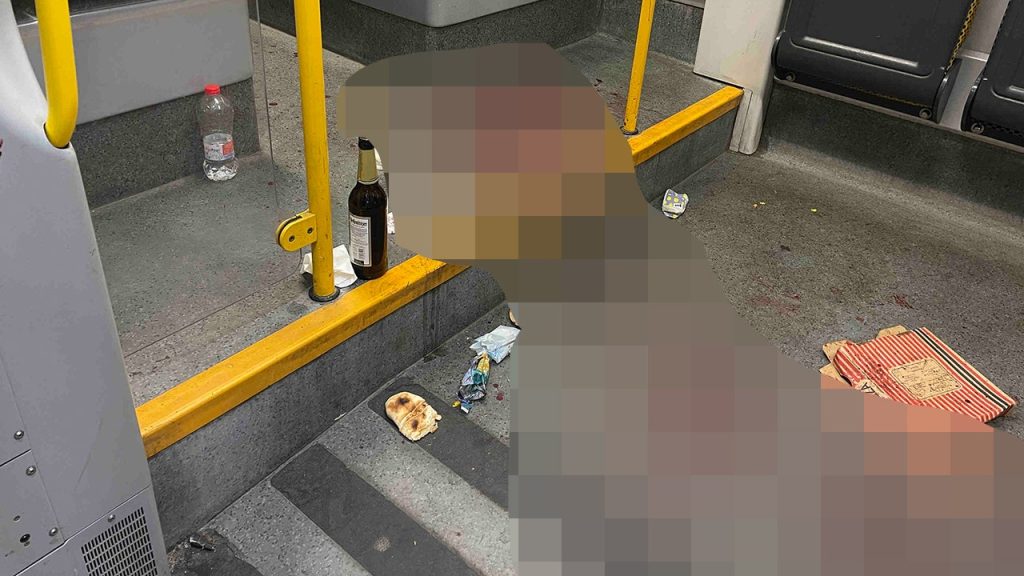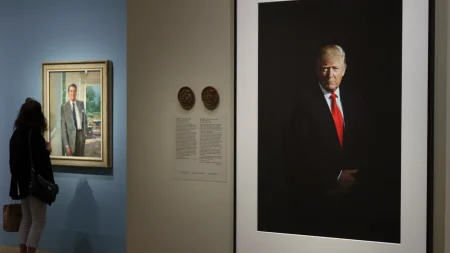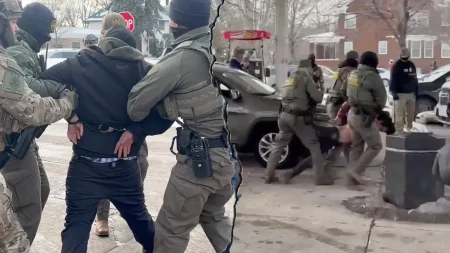American Tourist Stabbed While Defending Women in Germany: A Tale of Courage and Controversy
In a shocking incident that has sparked international attention, 21-year-old American John Rudat found himself the victim of a violent attack after stepping in to protect two women being harassed on a tram in Dresden, Germany. The young paramedic and part-time model from upstate New York was left with a facial wound from a six-inch blade, according to details shared in an online fundraiser established by his brother’s girlfriend. Rudat, who was visiting his former foreign exchange host family in Dresden, intervened when he witnessed the women being accosted by two Syrian men in the early hours of Sunday morning. His act of bravery, while commendable, has now left him facing a difficult recovery process that encompasses physical, emotional, and financial challenges.
The aftermath of the incident has been complicated by what appears to be a controversial legal decision. German authorities initially arrested a 21-year-old Syrian suspect on suspicion of beating Rudat before the stabbing occurred. However, in a move that has raised eyebrows, the suspect was subsequently released. Senior Public Prosecutor Jürgen Schmidt explained to German news outlet Bild that “according to the on-call public prosecutor’s assessment, there were insufficient grounds for detention. The knife attack cannot be attributed to him.” This decision has added another layer of complexity to an already troubling situation, leaving many questions unanswered about who was responsible for the stabbing and why they remain at large.
The attack left Rudat bloodied and requiring significant medical attention, with photos showing him covered in bandages following the incident. Taking to Instagram after the attack, the young American expressed his frustration with what he perceives as inconsistencies in Europe’s immigration policies. In his emotional statement, Rudat pointed out that the man who had assaulted the woman was being released just hours after the incident, claiming the individual was “an immigrant, an illegal one, a drug dealer, and very popularly known here, especially by the police.” His commentary reflected deeper concerns about accountability, as he questioned, “If they could do this to the people of Germany and then just get released 12 hours later… where is the law? Where is the structure?”
Rudat’s criticism extended beyond this specific incident to what he sees as a troubling pattern. He claimed this was “not the first time this has happened” and that it wasn’t the first offense for either of the men involved. His pointed questions about the disparity in how laws are applied to citizens versus immigrants have touched on sensitive political debates currently unfolding across Europe. “If Germans are held to that law and that structure, but these people can just come in, swing knives, and hurt, abuse, terrorize, and oppress citizens of Germany, then what do we do?” he asked in his social media post, giving voice to concerns that resonate with some segments of society while potentially drawing criticism from others who worry about such narratives fueling xenophobia.
The U.S. Embassy in Berlin has publicly condemned the attack on the American citizen, praising Rudat’s courage while calling for swift justice. In a statement posted on social media platform X (formerly Twitter), the embassy wrote: “While courageously intervening to protect a fellow passenger, he was viciously attacked. We urge German authorities to swiftly bring the perpetrators to justice and punish them to the fullest extent permitted by law.” The embassy’s statement concluded with a broader philosophical point about collective responsibility, noting that “Safety is a collective responsibility—no one is safe until all are safe.” This official response underscores the international dimensions of the incident, which has now become part of larger conversations about immigration, justice, and safety in Europe.
As Rudat begins his recovery journey, the incident highlights several intersecting issues that continue to challenge European societies: the integration of asylum seekers, public safety concerns, the effectiveness of criminal justice systems, and the sometimes contentious politics surrounding immigration policies. The fundraiser established to support his recovery describes the profound impact this act of violence has had on him and his loved ones, stating, “This horrible act against John leaves us devastated and seeking justice.” While the immediate focus remains on Rudat’s recovery and the pursuit of justice in his specific case, the broader questions his experience has raised will likely continue to resonate in ongoing public debates about safety, immigration, and social cohesion both in Germany and beyond. His story stands as a complex testament to both individual courage and the sometimes difficult realities of multicultural societies navigating challenging transitions.












